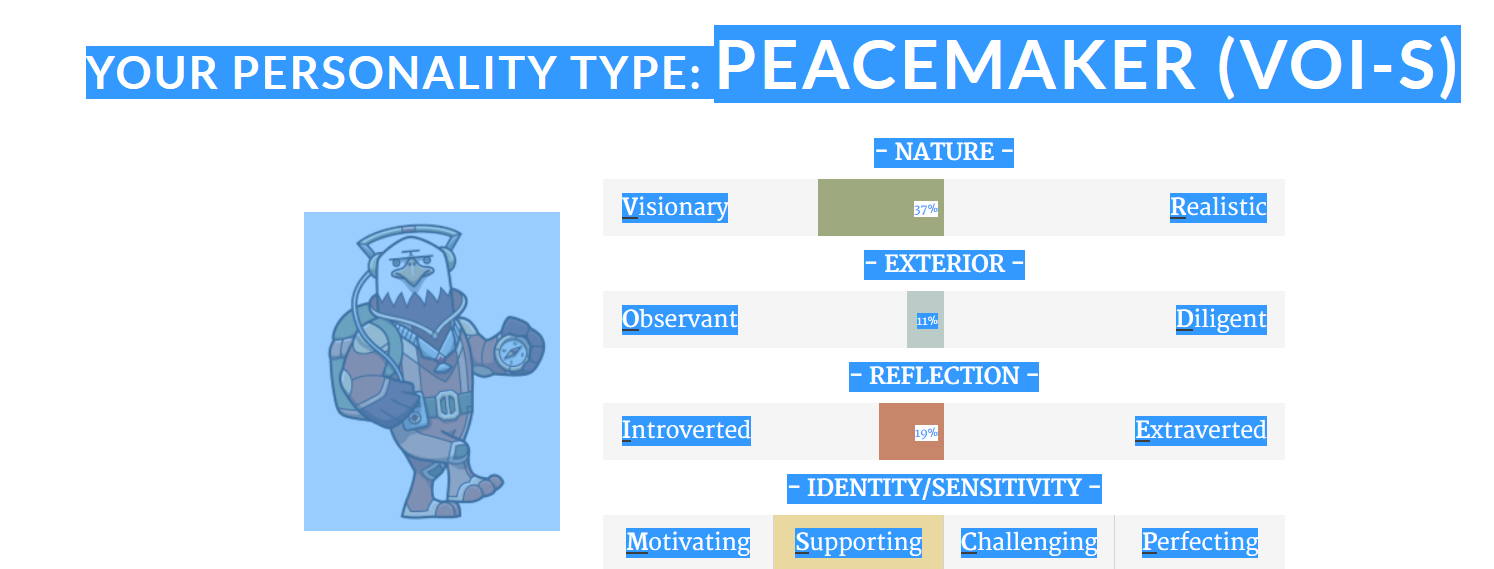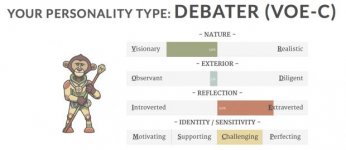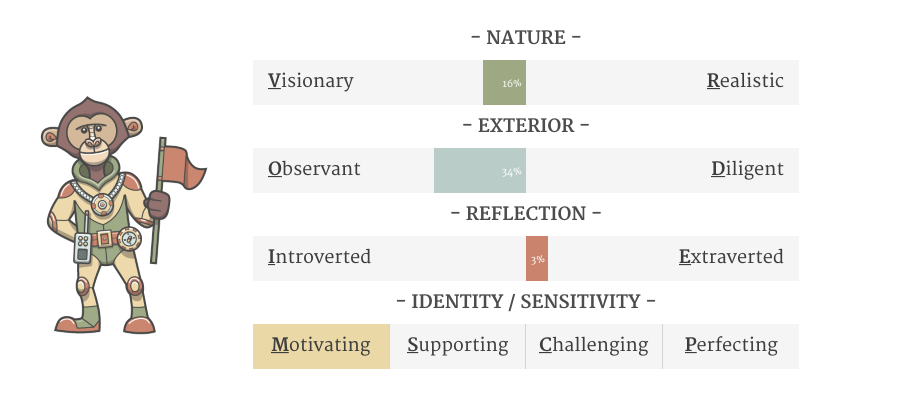Evee
Permabanned
- Joined
- Jul 3, 2014
- Messages
- 2,285
- MBTI Type
- INFP
- Enneagram
- 5w4
- Instinctual Variant
- sx/sp
Your personality type: Strategist (VDI-C)

Highly intelligent, unconventional, and quite rare, Strategists often acquire titles like “bookworm†and “geekâ€. To the extent that Strategists care about such names (they don’t), they wear the underlying ideas, that they are contemplative, logical people, with pride. By the time Strategists reach adulthood, the intellectual development they’ve cultivated since childhood puts them well ahead of their peers in terms of knowledge and independent thinking.
Whatever they choose to apply this intellect to, it’s always broken down into systems. Strategists strip away the aesthetic layers, from programming languages and pianos alike, and seek out the underlying laws of their function. These laws are made to be remade, which is what really drives Strategists. Whether this is innovation or controversy is the subject of some debate.
If that debate is conducted with the backing of bland truisms, shaky reasoning, titles, and social status, Strategists are unlikely to be impressed. Knowledge and effectiveness are the kings on Strategists’ board, and if they know their subject well, and often they do (and they know it), they pursue their points relentlessly. Either something is correct or it’s not – there is no middle ground.
Strategists aren’t thoughtlessly stubborn though. They don’t mind being proven wrong – in fact they respect those who can give them a good run for their money – but it must be done with clear arguments, calmly and thoughtfully presented and defended. Strategists are perfectly capable of admitting they don’t know the answers to specific problems, but they also expect that of others.
The hardest part about this near-obsessive focus on rational thought is that it often, ironically, fails to account for reality. Sometimes people make decisions based on emotions or pleasure. While perfectly natural, these motivations can easily scatter well-laid plans. It takes extraordinary circumstances to shake Strategists’ stability, but if anything can, it’s the perceived incompetence of others.
Unfortunately their stoicism and intellect tend to attract those looking for direction and support, often the very types who struggle with the visionary ambition Strategists demand. Clinginess and dependence are unwelcome to fiercely independent Strategists, who have little need for such things themselves.
Even Strategists’ closest friends are unlikely to find a shoulder to cry on. Strategists are especially uncomfortable with emotional outpourings, and they’ll likely just give a list of logical solutions to such predicaments. These emotional limitations have their drawbacks, especially in family life. Strategists take particular joy in improving things, building more efficient systems and more effective solutions, and training the skills and knowledge necessary to implement them. But Strategists’ desire to improve things is accompanied by an unyielding, cold-blooded rationality that dominates their relationships.
Strategists often take their own emotional stability for granted, assuming everyone else shares it, or at least ought to, while ignoring immensely powerful virtues like kindness, empathy, and compromise. While playing the chess game of life, Strategists may find that if they carelessly throw away the unique skills of the other 31 personality types, even the ones they just see as pawns, that they can be left unable to defend the king.




